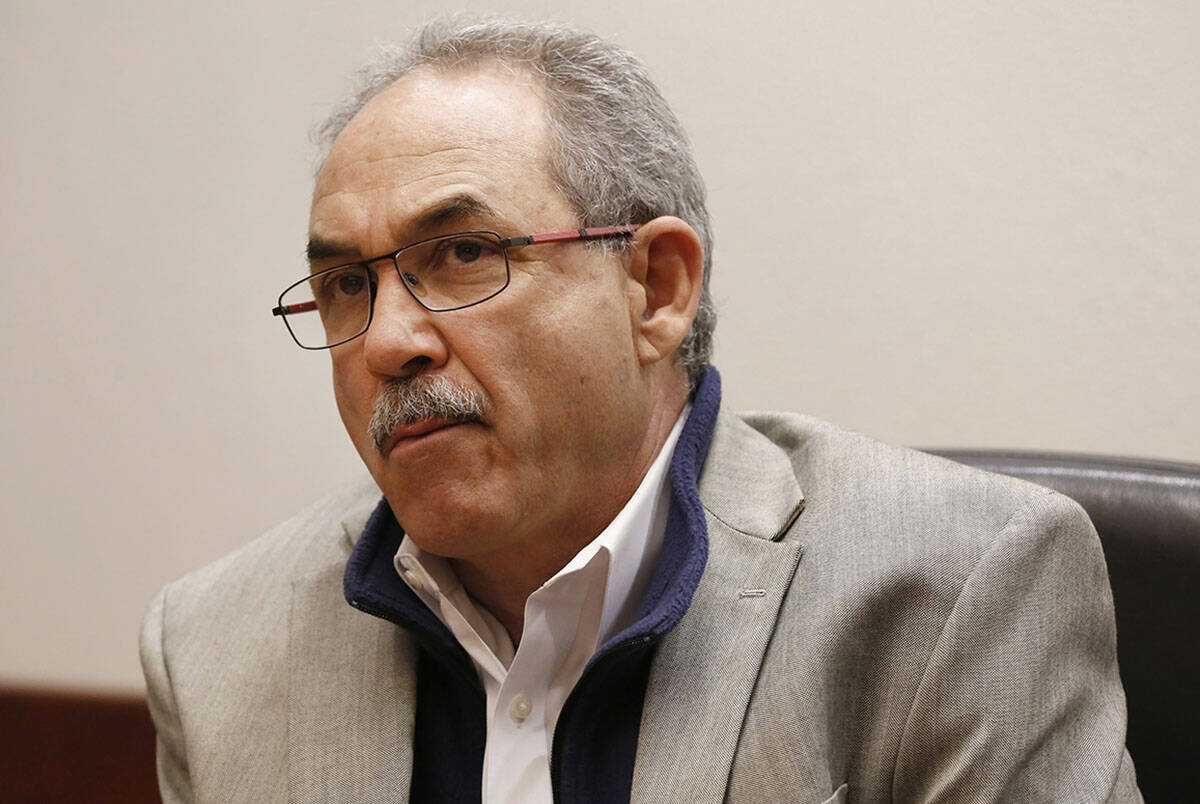STEVE SEBELIUS: Supreme Court legalizes extortion-by-initiative
“Hey, that’s a nice casino industry you got there. Be a real shame if somebody came along and added another tier to the gambling tax, say something around 9.75 percent. A real shame.”
That’s not exactly what John “Big Johnny V” Vellardita told the Nevada resort industry in 2020, but it could very well have been.
Instead, the Clark County Education Association — of which Vellardita is executive director — qualified a pair of initiatives in 2020, one to raise a portion of the state’s sales tax and another to increase the gaming levy.
But at the 2021 Legislature, it became clear neither petition was the real goal. Instead, Vellardita used the threat of a public vote on those petitions to pressure the casino industry into joining a coalition supporting an increase in the state’s mining tax, with the money going to schools.
Once the deal was cut, Vellardita agreed to drop both petitions, using a newly passed state law that allowed for such withdrawals, even though the petitions had collected more than enough signatures to qualify and had gone before the Legislature with no action taken.
Under Article 19, Section 2 of the state constitution, the procedure is clear: If a petition qualifies, and if the Legislature takes no action, then “the secretary of state shall submit the question of approval or disapproval of such statute or amendment to a statute to a vote of the voters at the next succeeding general election.”
But what’s a little constitutional procedure when you’re getting your way? Democrats in the Legislature, with time horizons rivaling that of a common fruit fly, unwisely passed a law specifically allowing for petitions to be withdrawn, anytime up to 90 days before the election.
Here we must note that the reasonable policy argument against such a law — that initiatives and referenda could be weaponized into mechanisms for extortion to force any industry to capitulate to the demands of any group that can successfully qualify a ballot measure — wasn’t just a theory. It had just been done right in front of their faces.
Secretary of State Barbara Cegavske, however, wasn’t buying it. Although the attorney general’s office opined the withdrawal statute was legal, she refused and said she intended to put both measures on the ballot.
A District Court judge disagreed, and Cegavske appealed to the Nevada Supreme Court. There, a majority blessed the law, saying “we conclude that NRS 295.026 is a permissible exercise of the Legislature’s power to enact statutes to facilitate the people’s initiative power and thus not unconstitutional.”
Ah, but rather than “facilitate” the people’s initiative power, this particular law short-circuits it, ending a petition that has otherwise qualified for the ballot in its tracks. What this law really facilitates is extortion by ballot measure.
A four-justice majority, in an extremely telling paragraph, essentially blessed that approach: “The sponsoring respondents withdrew the petitions after increased education funding was secured through the legislative representatives of the people during the legislative session,” they wrote. “The circumstances motivating the initiative petitions had changed, and the sponsors concluded that the statutory amendments proposed by the petitions were no longer warranted. Providing a means for initiative sponsors to respond to changing circumstances or the realization of undesirable and unintended consequences facilitates the exercise of the initiative power by making the initiative process more flexible.”
And people tend to become very flexible with a legislative gun to their heads, don’t they?
More reasonable is the three-justice minority, who said the constitution sets up a discrete process: Propose a measure, gather signatures, verify the signatures, transmit the matter to the lawmakers for consideration and, if they fail to act within 40 days, send it to the ballot. Nothing in the constitution mentions withdrawal.
“Post-transmittal withdrawal that prevents the voters from considering the proposal at the next election is not one of the options the constitution provides,” reads the dissent, by Justice James Hardesty. “This obstruction shows that the court should have held NRS 295.026 unconstitutional, as applied to allow withdrawal after a proposal has qualified for and been transmitted to the Legislature.”
But now, things are more — what’s the word? — flexible. Initiatives can be used to make certain industries offers that they can’t refuse. And it can be done totally in the open, with the concurrence of the Legislature and the Supreme Court.
You’ve got to hand it to Big Johnny V. He invented a whole new method of making policy. And he got to keep the gun and the cannoli.
Contact Steve Sebelius at SSebelius @reviewjournal.com or 702-383-0253. Follow @SteveSebelius on Twitter.























